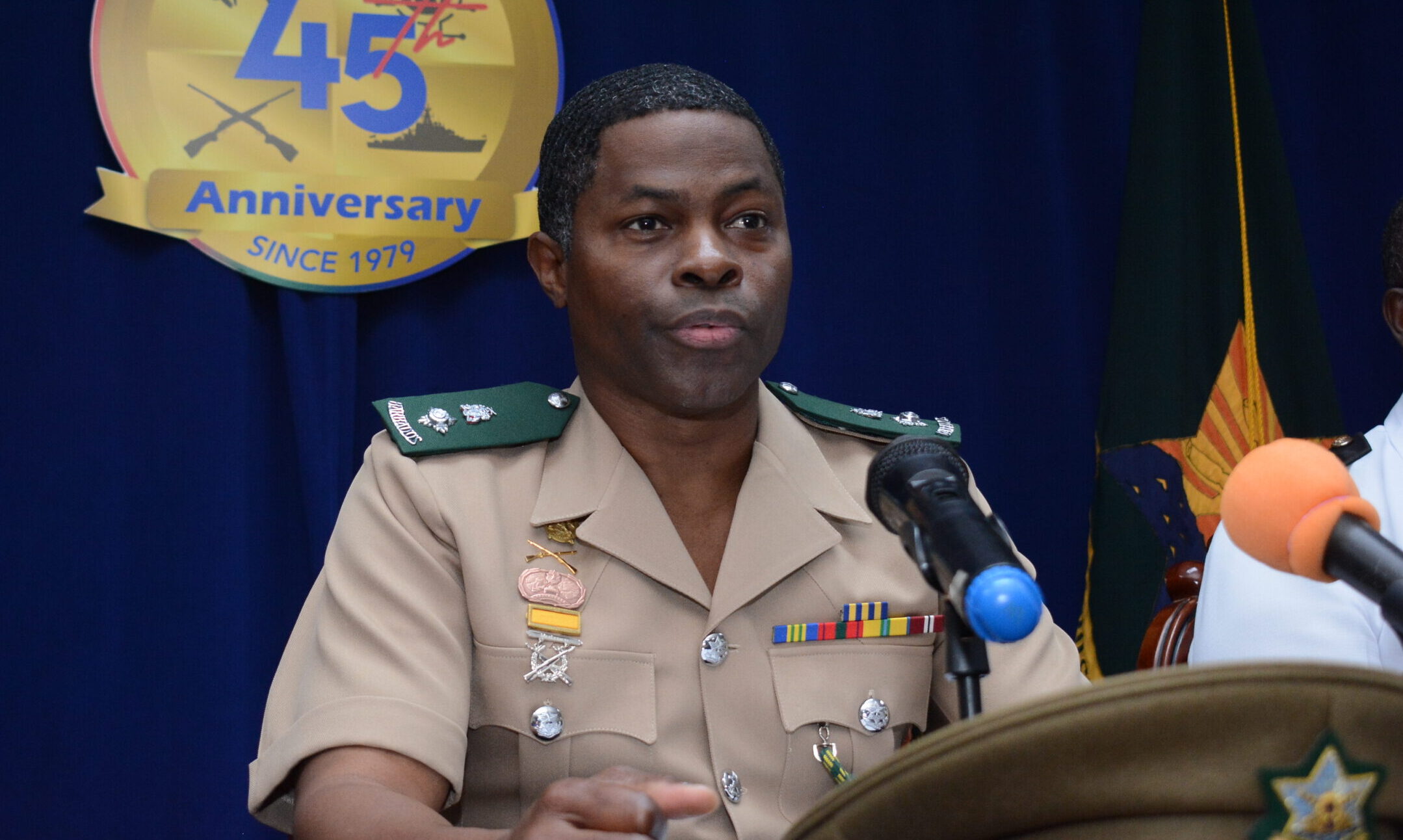Barbados Military Prepares for Mission in Haiti Amid Caribbean Community (CARICOM) Intervention Efforts

March 7, 2024
Barbados Defense Force engaged in pre-mission training for multinational intervention in Haiti unrest. CARICOM seeks to restore order. Efforts ongoing, deployment timeline undisclosed. Regional consensus sought for resolving Haitian crisis.
Barbados’ army is currently engaged in pre-mission training as the troops prepare to go into violence-torn Caribbean Community (CARICOM) neighbour Haiti as part of a multinational force to help restore order there, a senior military official said Wednesday.
Lieutenant Colonel Carlos Lovell, military advisor to the Chief of Staff of the Barbados Defence Force, said the 600-strong force is currently planning for its role in the intervention and continuing talks with fellow CARICOM governments.
“CARICOM, as you would have heard our prime minister say on more than one occasion… is committed to finding a solution to the unrest in Haiti, and the Barbados Defence Force has committed troops, manpower, equipment and supplies to be able to be part of that multinational response to the unrest in Haiti. There are members of the Barbados Defence Force who are engaged in pre-mission training, preparing them not just physically, not just with regard to security operations and tactics but also from a psychological standpoint to face the challenges when we do arrive in Haiti as part of a multinational task force,” Lt Col Lovell told journalists.
The military advisor could not say when that deployment would take place. “That is a question that can only be answered by the Prime Minister [Mia Mottley] and by the Chairman of the CARICOM Security Chiefs,” he said.
On Wednesday, CARICOM Chairman and Guyana’s President Dr Irfaan Ali said in a statement that the regional bloc has not been able to reach any form of consensus regarding the situation in Haiti despite working on the issue over the past three days.
“It is clear that Haiti, even with a homegrown solution will need the support of not just CARICOM but the international community,” he said. “We in CARICOM are fully committed to utilising all our efforts and all our energies and dedicated as a collective on this pressing matter of Haiti.”
Earlier, the United Nations (UN) High Commissioner for Human Rights Volker Turk called for the “urgent deployment, with no further delay” of the planned security force the Security Council approved in October last year.
The UN Security Council had authorised a Multinational Security Support Mission to “take all necessary measures” against alleged gang members while collaborating with Haitian police to secure routes for humanitarian aid and ensure stringent measures to prevent further rights abuses.
Barbados is one of five countries to have formally pledged troops to the force, Benin being the largest known contributor with 1 500 personnel, along with Chad and Bangladesh although actual numbers have not been announced. The Bahamas had previously said it would send 150 people.
The BDF’s preparations to assist the CARICOM nation, which has been plagued with gang violence amid calls for Prime Minister Ariel Henry to step down, comes some 30 years after its last deployment to Haiti for Operation Restore Democracy.
Noting that there are still BDF officers who were part of the 1994 multinational intervention, Lt Col Lovell said: “We are making the best use of those individuals to be able to pass on some of the knowledge, some of the information and some of the cultural nuances with respect to the Haitian people and what to expect when our troops arrive in Haiti.”
Back in September, Minister of Foreign Affairs Kerrie Symmonds announced that Barbados would provide support to the multinational security force for Haiti. At the time, he said the support would come in the form of security personnel dispatched in coordination with the Regional Security System, and Barbados would also provide additional in-kind support in the form of training and capacity-building to the Haitian government based on jointly-identified objectives.
But on Monday, the ongoing crisis that began with the July 2021 assassination of President Jovenel Moïse reached a new peak when heavily armed gangs tried to seize control of the Toussaint L’Ouverture International Airport, exchanging gunfire with police and soldiers in the latest attack on key government sites.
The latest explosion of violence follows a mass escape from the country’s two biggest prisons. Within hours of the airport assault, officials said Haiti’s police academy came under attack by an armed gang.
With the airport closed, interim Prime Minister Ariel Henry has been unable to return to the country. He had been in Georgetown last week attending the CARICOM summit.
During a statement to the UN General Assembly last year, Prime Minister Mottley called on the Security Council to issue a robust mandate for the multinational force and for the international community to build a comprehensive, long-term development plan for Haiti.
Since its inception in 1979, the Barbados Defence Force has come to the rescue of several CARICOM neighbours to provide security, disaster management and disaster response.
The BDF’s first overseas mission was as part of the US-led military intervention after the October 1983 coup in Grenada. Soldiers were deployed to Dominica to quell unrest around the 2019 elections, two years after providing humanitarian assistance in the aftermath of Hurricane Maria.
Lt Col Lovell recounted to journalists other achievements in border control, including the “millions of dollars worth of illicit items which have been interdicted in our maritime domain by the members of the Barbados Coast Guard”.
fernellawedderburn@barbadostoday.bb


